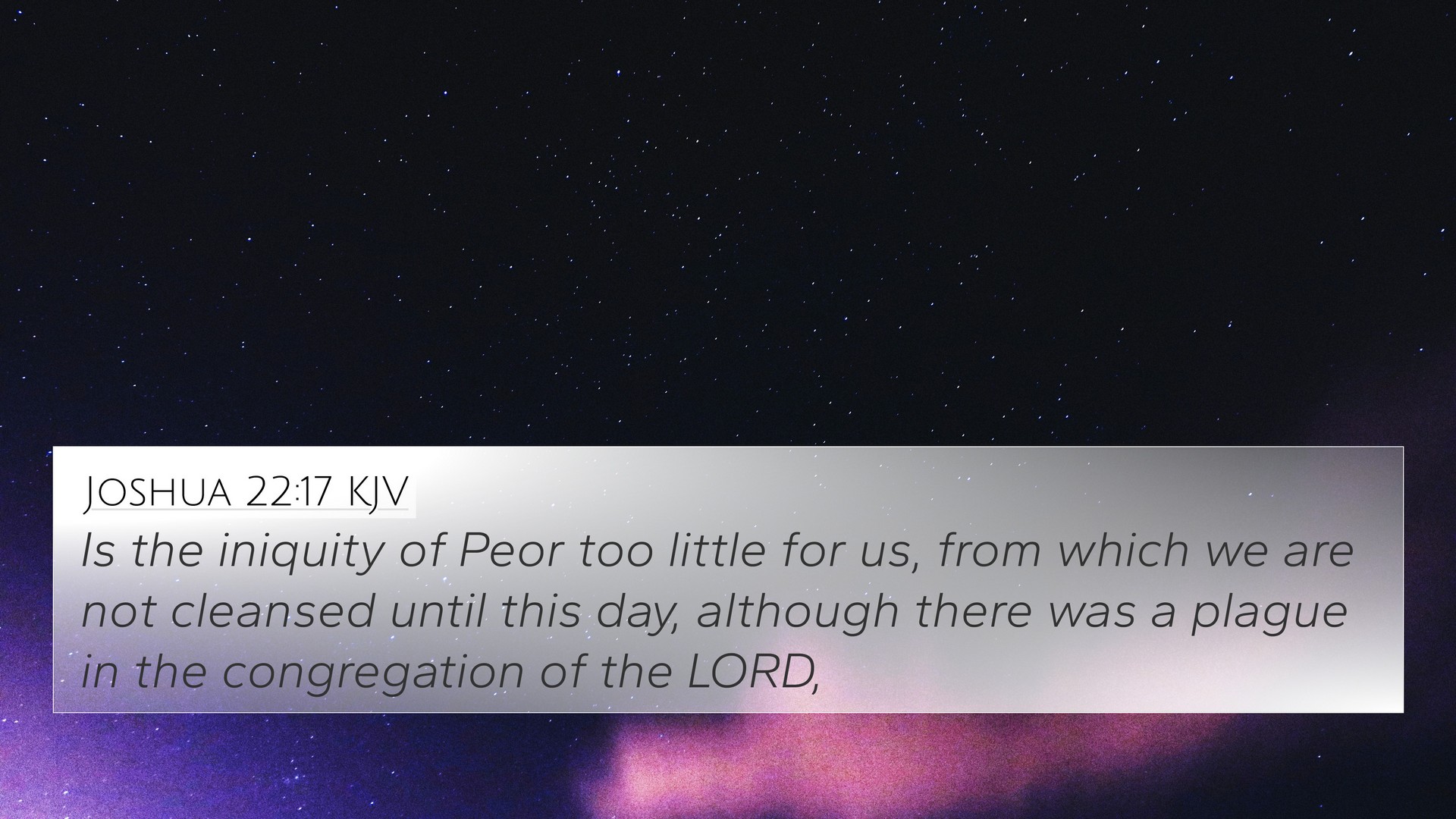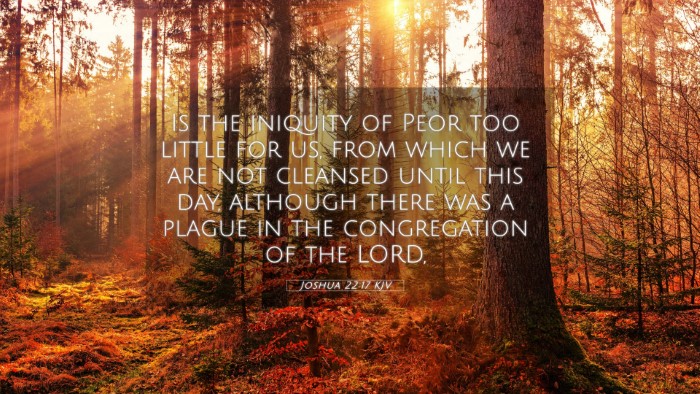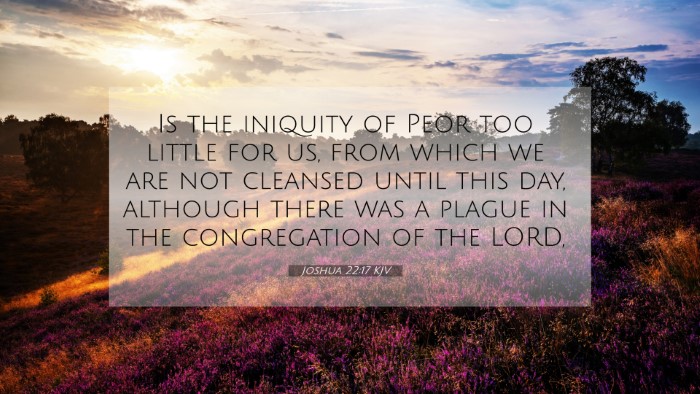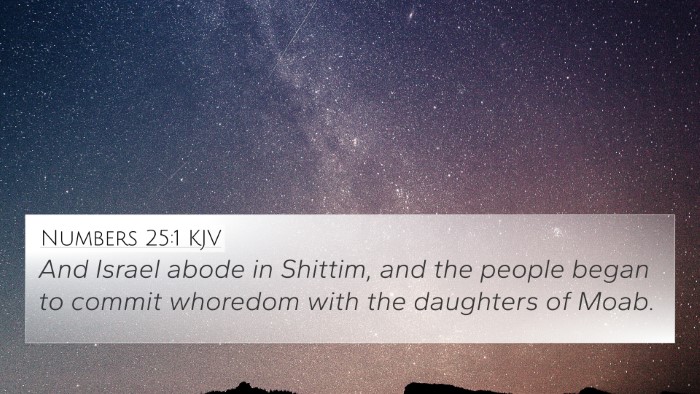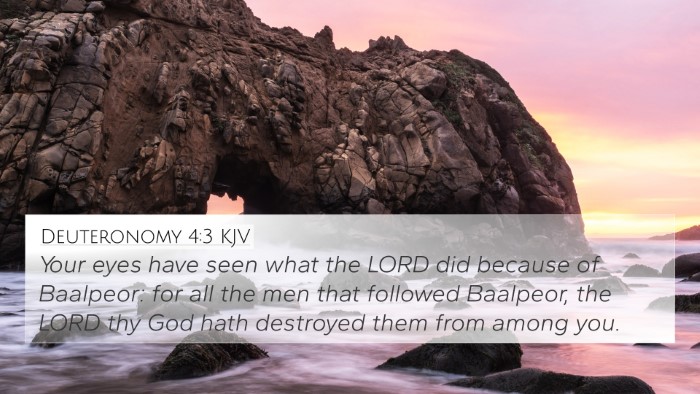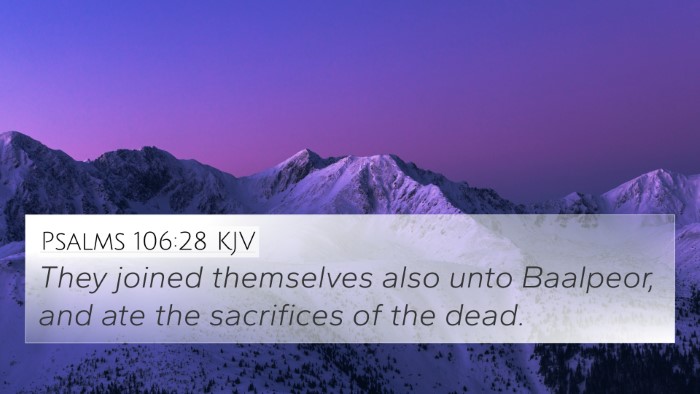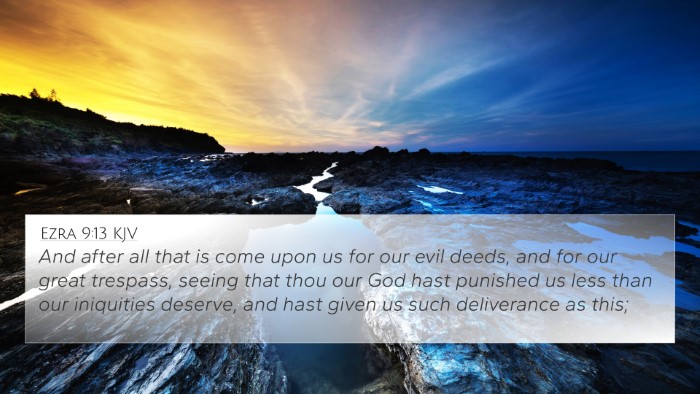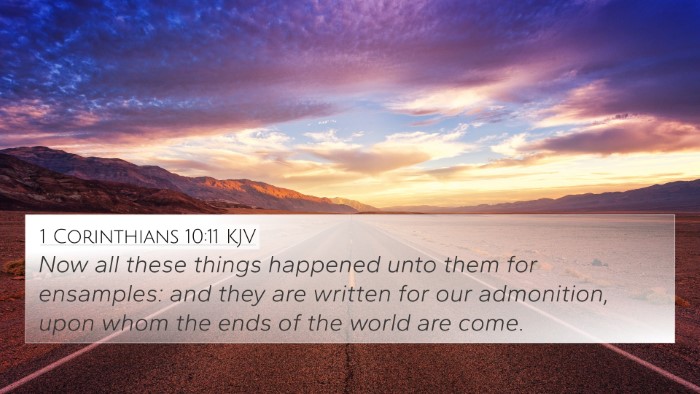Understanding Joshua 22:17
Joshua 22:17 states: "Is the iniquity of Peor too little for us, from which we are not cleansed until this day, although there was a plague in the congregation of the Lord?"
Meaning and Interpretation
This verse reflects the concern that the Israelites had regarding remaining sin and its consequences. The context involves the tribes of Reuben, Gad, and half the tribe of Manasseh who had settled on the eastern side of the Jordan River and were accused of establishing an altar that appeared to separate them from the community of Israel. The reference to the iniquity of Peor brings to mind the sin of idolatry and sexual immorality that plagued Israel and led to a severe punishment from God.
Commentary Summaries
- Matthew Henry: Emphasizes that the iniquity of Peor was a reference point for the people of Israel, reminding them of the serious consequences of unrepented sin. He highlights the need for unity in worship and communal memory of God’s judgments.
- Albert Barnes: Points out that the tribes recognized the seriousness of sin and its effects on the entire community. He notes that one tribe’s sin could bring judgment on all, advocating for collective sanctity among God’s people.
- Adam Clarke: Focuses on the historical context of the Peor incident, highlighting that it serves as a warning for the Israelites against the dangers of leading others into sin. He discusses God’s providence and the importance of acknowledging past transgressions.
Cross-References
This passage connects to several other scriptures, creating a rich network of biblical themes surrounding sin, consequences, and communal responsibilities. Below are the cross-references related to Joshua 22:17:
- Numbers 25:1-9 - Details the sin of Peor and the resultant plague as a consequence of Israel's unfaithfulness.
- Deuteronomy 4:3 - Warns against the sins of worshiping false gods, echoing the gravity of Peor's sin.
- Psalm 106:28-30 - Illustrates the recurring theme of Israel's failure and the resulting divine judgment, reflecting on their history of idolatry.
- Galatians 6:7 - Brings forward the principle that God is not mocked; whatever one sows, he will also reap, which applies to communal sin.
- 1 Corinthians 10:8 - References the incident at Peor directly, urging readers to learn from the mistakes of Israel.
- Hebrews 10:26-31 - Discusses the dangers of deliberate sin after receiving knowledge of the truth, highlighting the severity of judgment for sin among believers.
- Romans 14:7-8 - Reminds believers that no one lives for themselves alone; sin affects the entire body of Christ.
Thematic Connections
The themes of community accountability, divine judgment, and the seriousness of sin are woven throughout the Bible. Joshua 22:17 serves as a poignant reminder of how isolated sin can impact the whole congregation. Understanding and reflecting on these themes through cross-references enhances our grasp of scriptural messages and their application to our lives today.
Tools for Further Study
To dive deeper into the connections within scripture, consider the following tools:
- Bible Concordance - Helps locate passages and find related verses efficiently.
- Bible Cross-Reference Guide - A structured approach to find thematic correlations between scriptures.
- Cross-Reference Bible Study - Methods designed to explore different narratives and teachings across the Bible.
Conclusion
Joshua 22:17 serves as a critical reminder of the impact of sin on the community of believers, invoking a call to holiness and collective responsibility in upholding God's commandments. The interconnectedness of scripture through cross-references enriches our understanding and invites us into a deeper dialogue with the text.
